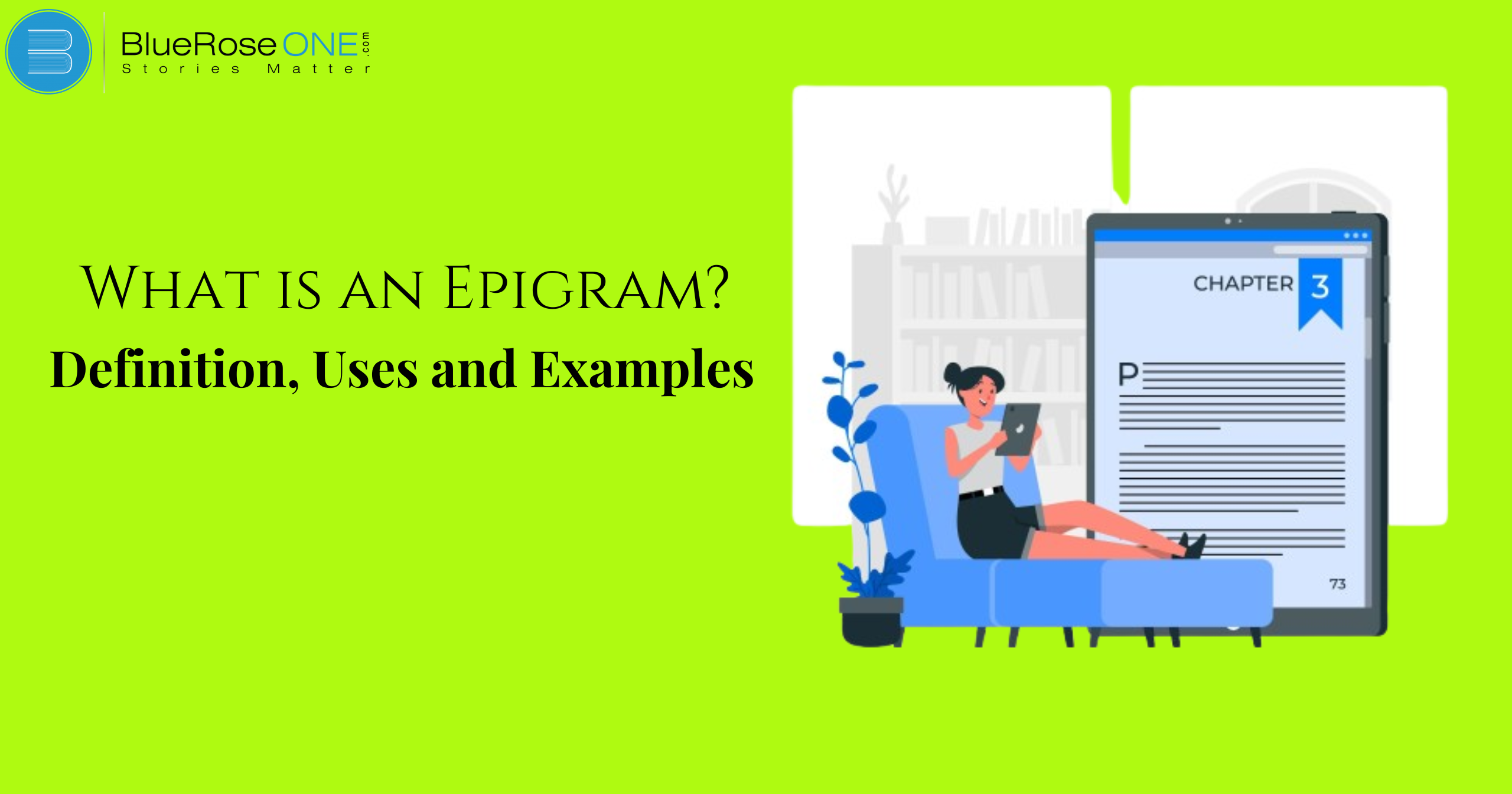What is an Epigram?
An epigram is a brief, humorous, and frequently paradoxical statement or poetry that conveys a single thought or idea in an effective manner. It usually combines wit, wisdom, and brevity to produce a lasting impact. Epigrams are frequently employed in literature, speeches, and everyday conversation to emphasize truths, ironies, or insightful insights.
Uses of Epigrams
Literature and Poetry
Epigrams are frequently used in literature and poetry to convey strong, unforgettable insights in a few words. Poets and authors use epigrams to convey facts, critiques, or comedy, making their words more potent.
In poetry, an epigram may end a poem with a funny or thought-provoking twist that leaves a lasting impression. In literature, characters or narrators employ epigrams to express wisdom or irony.
Their brevity and wit make them fascinating and memorable, which improves the reader’s experience.
Rhetoric and Speeches
Rhetoric and speeches frequently employ epigrams to leave a lasting impact on the listener. These brief, creative sentences assist to highlight crucial points and make concepts more remembered.
For example, a speaker may utilize an epigram to summarize their argument or to inspire the audience with a thought-provoking concept.
Famous leaders such as Winston Churchill and Abraham Lincoln employed epigrams in their speeches to provide weight to their remarks, making their messages more powerful and lasting.
You may also read: Top 10 Ebook Selling Platforms for Authors in 2025
Everyday Conversations
Epigrams frequently enhance regular talks by adding humor, wit, or insight. Their succinct form makes them simple to remember and share, making everyday conversations more fascinating.
People use epigrams to communicate difficult ideas succinctly, provide smart insights, or make light of situations. For example, epigrams such as “Actions speak louder than words” or “The pen is mightier than the sword” underline fundamental facts in memorable ways. This makes interactions more meaningful and thought-provoking.
Social Commentary
Epigrams are frequently employed to convey cutting and funny societal comments. They present flaws, paradoxes, or absurdities in society, politics, or human behavior in a succinct and memorable manner.
Epigrams are used by writers and philosophers to encourage thought or question standards without engaging in lengthy discussions.
For example, Oscar Wilde’s epigrams frequently use humor to criticize societal standards, such as “Society often forgives the criminal; it never forgives the dreamer.” Such thoughts are compelling because they blend truth with artful phrasing.
You may also like: 10 Best Romance Books 2025 | BlueRoseOne
Characteristics of an Epigram
Brevity
One of the most important properties of an epigram is its brevity. An epigram is always brief and simple, typically consisting of only one or two lines.
Its tiny size enables it to convey a forceful message or funny quip with minimal information. This brevity makes it simple to recall and impactful, ensuring that the audience understands the message immediately.
Despite its simplicity, an epigram’s words are carefully selected to maximize impact in a tiny space.
Wit
Wit is a key feature of an epigram, making it sharp and engaging. It involves cleverness and intellectual humor that surprises or amuses the reader.
This characteristic often transforms simple observations into memorable expressions by using wordplay or irony. Wit adds charm and sophistication to the epigram, helping it convey deep or critical ideas in a lighthearted way.
For example, Oscar Wilde’s epigrams often use wit to highlight societal flaws with humor and brevity.
Surprise
One distinguishing feature of an epigram is its element of surprise. Epigrams frequently have an unexpected twist, providing a new or ironic perspective that takes the reader off guard.
This surprise can be achieved through a smart play on words, an unexpected conclusion, or a reversal of expectations. This makes the epigram more memorable and thought-provoking. The capacity to surprise adds humor, wit, or insight to the message, making it memorable in just a few words.
Memorability
One of the most important aspects of an epigram is its memorability. Epigrams are designed to make a lasting impression with their brief and forceful words.
Their keen wit, brilliant language, or surprising twist make them memorable and shareable. Epigrams become memorable and popular over time by including rhyme, rhythm, or startling imagery.
This feature ensures their relevance in casual conversation and literature, where their brevity adds to their enduring charm.
You may also like: Esque: Definition & Examples of How to Use It
Examples of Epigrams
Literary Epigrams
- “To be safe on the Fourth, don’t buy a fifth on the third.” – James H. Muehlbauer
- “I can resist everything except temptation.” – Oscar Wilde
Poetic Epigrams
- “Little strokes / Fell great oaks.” – Benjamin Franklin
Philosophical Epigrams
- “The only thing worse than being talked about is not being talked about.” – Oscar Wilde
- “Man proposes, but God disposes.” – Thomas à Kempis
Humorous Epigrams
- “Experience is the name everyone gives to their mistakes.” – Oscar Wilde
- “No one can make you feel inferior without your consent.” – Eleanor Roosevelt
You may also read: Quilbot Review: Can It Really Improve Your Writing in Literature?
Conclusion
Epigrams are a valuable communication tool because they may convey profound truths with humor and grace. Whether in literature, rhetoric, or everyday life, their brilliance and brevity have a long-lasting influence.
















